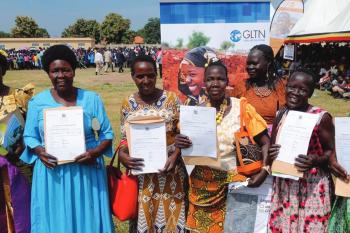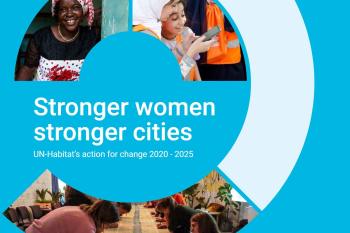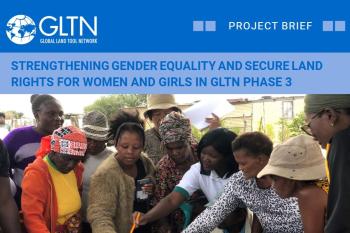
Read More
Gender Strategy for Land-at-Scale Uganda
Women’s Land Rights (WLRs) are fundamental human rights, foundational to gender equality and women’s dignity and instrumental in improving food security, effective climate action, poverty eradicati

Experiences from the District Livelihood Support Programme in Uganda
Customary tenure, including communal tenure, has been widely described and documented within the literature of land professionals, geographers, planners, anthropologists, and sociologists among others. In Uganda, a number of approaches have been implemented by the Government of Uganda to improve customary tenure security.
This report presents the findings of a study conducted by the African Institute for Strategic Research Governance and Development (AISRGD) to document the experiences in the issuance of Certificates of Customary Ownership (CCO) piloted under the District Livelihood Support Programme (DLSP) in the Ministry of Local Government in Uganda. This study was supported by the International Fund for Agricultural Development (IFAD) and UN-Habitat through the Global Land Tool Network (GLTN) under the framework of the Land and Natural Resources Tenure Security Learning Initiative for East and Southern Africa (TSLI-ESA) Programme.
The findings are drawn from three districts of Apac, Oyam and Masindi where DLSP piloted the issuance of CCO. Despite the challenges, it is worth noting that in the three districts where this study was carried out there are remarkable achievements as well as challenges in the implementation of CCO. The experiences from DLSP offer a good case for government and other stakeholders to make policy decisions on CCO acquisition from informed points of view.

Women’s Land Rights (WLRs) are fundamental human rights, foundational to gender equality and women’s dignity and instrumental in improving food security, effective climate action, poverty eradicati

This publication presents a summary of UN-Habitat’s gender equality impact over the past five years, in line with the Beijing reporting cycle.

GLTN’s institutional commitment to gender equality and secure land rights for women and girls has been at the core of its work since inception in 2006.